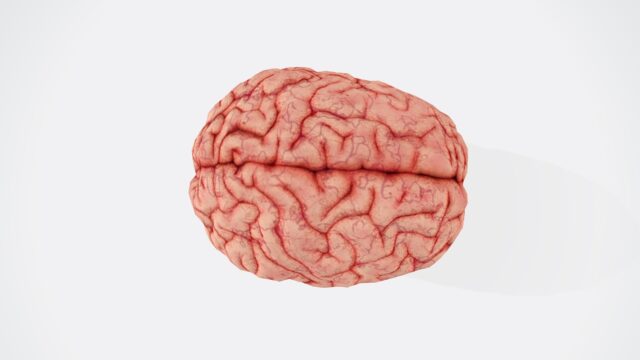
(Photo: Buddha Kumar Shrestha/Unsplash)Data from several Alzheimer’s disease and gastrointestinal disorder studies appear to suggest the conditions are genetically linked.
Researchers at Edith Cowan University (ECU) conducted a meta-analysis of several Alzheimer’s and gut health studies in an attempt to determine whether the two are associated. Each study involved the genetic information of about 400,000 people, providing the team with a large swath of data with which to find possible correlations. Sure enough, the analysis proved that the two health concerns have multiple genes in common.
“Findings reveal a positive significant genetic overlap and correlation between [Alzheimer’s] and gastroesophageal reflux disease (GERD), peptic ulcer disease (PUD), gastritis-duodenitis, irritable bowel syndrome and diverticulosis,” the study, published this week in Communications Biology, reads. The nine correlative genes are PDE4B, BRINP3, ATG16L1, SEMA3F, HLA-DRA, SCARA3, MTSS2, PHB, and TOMM40. While these genes’ categories are varied, several of them are protein coding genes.
Cholesterol also appears to connect the two. A close look at the study participants’ health data revealed that “abnormal” cholesterol levels increased people’s risk of developing both Alzheimer’s and various gut disorders. It’s unclear, however, whether this similarity (and the genetic links) mean gut disorders cause Alzheimer’s or are merely correlated…or if causality works the other way around.
(Photo: Robina Weermeijer/Unsplash)
Regardless, these bridges between Alzheimer’s and gastrointestinal disorders further solidify a concept scientists have been developing for decades, if not longer: that gut health has an impact on brain health. “These findings agree with the concept of the ‘gut-brain’ axis or the ‘gastric mucosa-brain’ relationship, which has been implicated between GIT-related traits and central nervous system disorders including depression and Parkinson’s disease,” the researchers write. In fact, the research behind the gut-brain axis is so profound that many scientists refer to the gastrointestinal tract as the “second brain.”
About 6.5 Americans are thought to have Alzheimer’s right now, and the US is estimated to have spent about $2 trillion in Alzheimer’s-related care by 2030. But despite the disorder’s prevalence, it’s historically known no cure. Identifying genetic links with comorbidities could offer scientists the insight they need to devise curative treatments. In fact, ECU’s study ponders whether lipase inhibitors—which are typically prescribed to prevent the absorption of dietary fat in the intestines—could be utilized in the prevention or treatment of Alzheimer’s.
Now Read:
Subscribe Today to get the latest ExtremeTech news delivered right to your inbox.
© 1996-2022 Ziff Davis, LLC. PCMag Digital Group
ExtremeTech is among the federally registered trademarks of
Ziff Davis, LLC and may not be used by third parties without explicit permission.
 #Bizwhiznetwork.com Innovation ΛI |Technology News
#Bizwhiznetwork.com Innovation ΛI |Technology News



